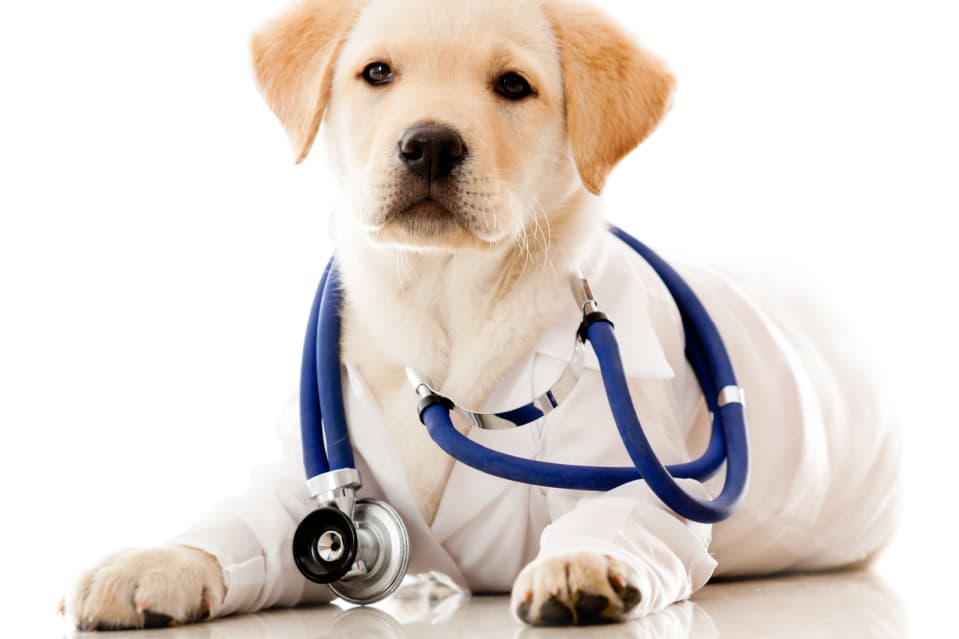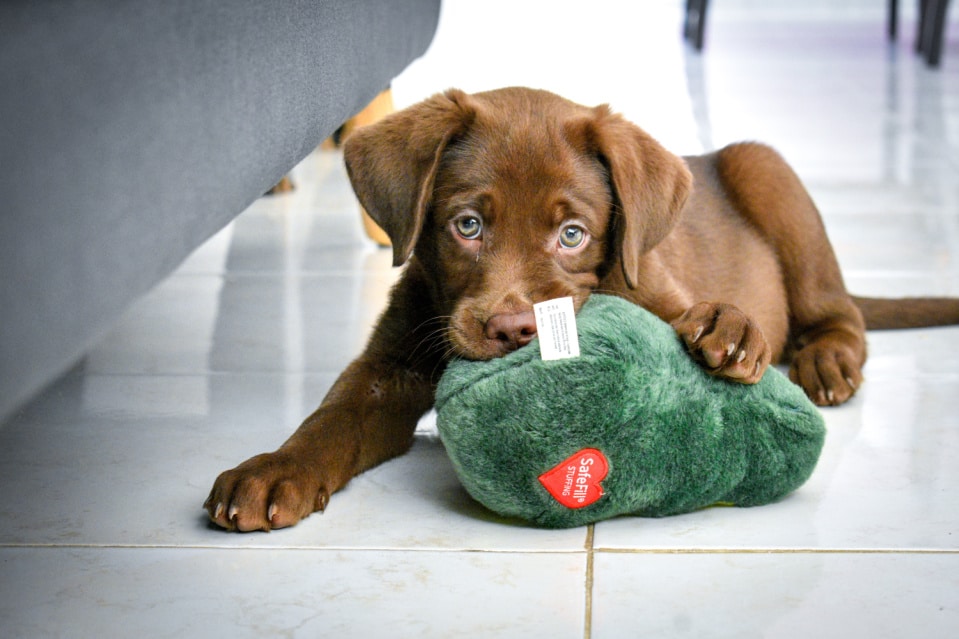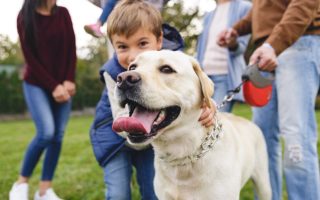Nervous Labrador Retriever And What You Can Do About It. A Labrador is a popular dog breed often used for hunting and tracking. Labs can be shy around strangers, noisy at home, or too clingy to their owners. If you’re new to pet ownership or just dealing with new issues, this resource is for you. Here are some of the best ways to recognize and address the signs of nervous-ness in labrador retrievers.

Labradors are a very easy-going breed, but they can still suffer from anxiety, stress, and nervousness. Altogether due to different circumstances such as separation anxiety, mistreatment, a new environment, and others.
Your Labrador nervous-ness should address properly and as soon as possible to prevent possible risks and deterioration of their health. By spending time daily showing them that there’s nothing to fear with proper training, reward systems, playing fetch. Just being with them can significantly decrease this state. In addition to this, it is always recommended to take your dog to the vet first to discard. Any health-related issues that might be causing your dog’s nervous behaviour. As well as consulting a professional dog behaviourist for personalized help.
Below you can find useful information about why Labs get nervous in the first place. The importance of addressing this matter properly and quickly. Different situations that might be indicators of your dog suffering from anxiety and stress, that consequently make them nervous.
Why Do Labs Get Nervous?
There are some factors responsible for this. But the main one has to do with the lack of socialization during the critical period of a dog’s early development (which ends at 13-14 weeks of age). During this time, dogs are very receptive to new experiences and getting along with others).
If during this period of critical growth a puppy remains withdrawn or faces difficult situations. It is very likely to become fearful and nervous. This resembles the importance of helping your dog socialize and encounter certain scenarios that are not used to. Always being by its side and supporting them every step of the way.
Is This Really Important?
It is a serious matter that owners should address carefully but quickly to ensure the well-being of their Lab. Nervousness in dogs increases the chances of them biting back if they feel threatened or scared. which is not only dangerous for you but the dog itself and the people around it.
The best thing to do is to take this topic with responsibility and start helping your Lab overcome its fears and become a happy, healthier, and safer dog. If you’re unsure if your Lab is nervous, here are some common situations you might be watching your dog experiencing.
Erratic Eating
If your Lab has been taking its treat too hard, it might be suffering from stress, which consequently causes nervousness. Dogs tend to release their tension while they’re eating, so you should be careful when they are around their food to prevent them from biting you by accident due to feeling threatened that their food will take away.
Recent Separation From Owner
Separation anxiety is widely common in dogs across all breeds, and Labs are no exception. If you notice that your Lab becomes extremely nervous once their owner leaves home. When they start getting ready to leave, it might caused by separation anxiety and provoking nervousness and stress.
A good thing to start implementing is associative training. Where you can take some time daily to teach your Lab that it shouldn’t become nervous when you leave. For example, jiggling your keys in front of them and giving them a treat afterwards will start to become a habit. So they know that when you grab your keys to go to work they will get a reward. This slowly will decrease your Lab’s stress levels, reducing possible anxiety and nervousness.
New Home
Dogs, despite their age, tend to get nervous when they first arrive at your home. Because they don’t know yet if it is a safe environment or not. This should wear out over time once they start knowing the place. But you should teach them that your house is a safe environment for them.
One way to do this, which is a major factor a dog normally uses as an indicator of safety or threat, is to create a special place for them where they can be alone when they need to, as well as an undisturbed place when they are eating.
Mistreatment From Previous Owners Or People
When a Labrador mistreated, later it becomes nervous around people as a consequence of this, in addition to other behaviour issues that they develop. Once your dog starts getting more comfortable in your home, as explained in the point before, it will become less nervous but still, a good thing to do is to reinforce this attitude by training them in a loving way (meaning that the methods used do not include violence, but discipline and a reward system when they achieve the results you want) and giving them the attention they need, such as playing and exercising with them.
Dogs that rescued or adopted from shelters tend to need a bit more time to adjust than other situations and should address even more carefully. If you feel like you’re not progressing even though you’ve tried everything, you should first take them to the vet (if you haven’t already done so when you took them in) to ensure they’re not suffering from any health-related issue and then, if necessary, engage with a professional dog behaviourist to properly help your dog overcome its fears.
The Bottom Line
Although nervousness is relatively normal in dogs as in humans, it shouldn’t be overlooked and passed by, thus it can compromise your Lab’s health and even your safety.
To ensure the best for your dog, it is important to constantly show them love and appreciation while engaging in a proper training program to prevent them from suffering in any way. Taking your dog to the vet should be highly considered if you feel like you’re not progressing with making them feel less nervous, as well as consulting a certified dog behaviourist.







